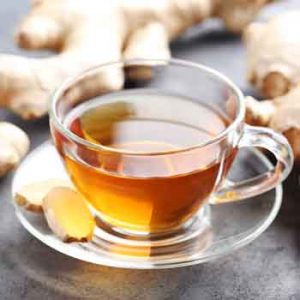
More evidence that low-calorie sweeteners are bad for your health
Studies show that artificial sweeteners can raise the risk of hypertension, metabolic syndrome, type 2 diabetes and heart disease, including stroke.

Several herbs can help relieve uncomfortable symptoms that are common to pregnancy and birth.
No medicinal herb other than those known to be safe as everyday foods should be take during early pregnancy or while breast-feeding without the advice of a qualified herbalist (see more below).
However, some dietary plants and external lotions can relieve common ailments such as morning sickness or varicose veins, and heal the body after childbirth. This chart contains the key herbs that are beneficial for pre- and post-natal mothers.
Ginger (Zingiber officinale)
A highly effective anti-emetic that helps to relieve the symptoms of nausea and morning sickness. Add a couple of slices of fresh ginger root to a cupful of hot water and sip as required.
Chamomile (Matricaria recutita)
A versatile and gentle everyday herb that is calming and soothing to the nerves and digestion. Drink a cupful of infusion to relieve morning sickness, stress and tension, to aid relaxation before going to sleep, and as an aid to the digestion.
Witch hazel (Hamamelis virginiana)
A cooling and astringent herb that benefits veins. Soak a pad of cotton wool in distilled witch hazel and apply to aching legs, varicose veins or haemorrhoids.
Lavender (Lavandula angustifolia)
A calming and anti-inflammatory essential oil that promotes healing after childbirth. Add 4-5 drops of lavender oil to the bath water. To relieve mastitis, add 3-4 drops of essential oil to warm water and apply using a clean facecloth as a compress.
Linseed (Linum usitassimum)
Acts as a gentle laxative and bowel lubricant, and is also very rich in omega fatty acids particularly essential during pregnancy. Add a tablespoon to breakfast cereal or muesli and increase your fluids to help prevent constipation.
Calendula (Calendula officinalis)
Highly nourishing and healing to the skin. Combine the tincture with 5t John’s wort and dilute to use as a lotion to bathe any tearing or stitches after childbirth. Massage the macerated oil into the skin during pregnancy to help prevent stretch marks.
St John’s wort (Hypericum perforatum)
Has effective antiseptic and pain-relieving properties. Combine the tincture with calendula and dilute to use as a lotion to heal tearing or stitches after childbirth; also use to bathe cracked nipples, although rinse with clear water before breast-feeding.
Raspberry leaf (Rubus idaeus)
A uterine tonic that helps to prepare the body for childbirth. Drink the infusion daily during the last trimester of pregnancy [not suitable during early pregnancy. Continue drinking it for two to three weeks after the birth to help contract the muscles and promote breast milk.
Dill (Anethum graveolens)
The seeds make an excellent infusion to drink during breast-feeding, as dill helps to promote the breast milk and also relieves any colic or wind in the baby. May be combined with fennel seeds.
Jasmine (Jasminum officinale)
A delightfully fragrant essential oil that is traditionally used during labour for its relaxing properties and to help instil feelings of calmness and confidence. Dilute in a base oil and ask your partner to massage it into your lower back.
Herbs to avoid in pregnancy
This list of herbs should not be used internally in pregnancy unless prescribed by a qualified medical herbalist trained in the appropriate use of these substances. Please note that this list is not exhaustive.
Culinary herbs marked with an asterisk (*) are acceptable, but avoid them in large therapeutic doses.

Please subscribe me to your newsletter mailing list. I have read the
privacy statement